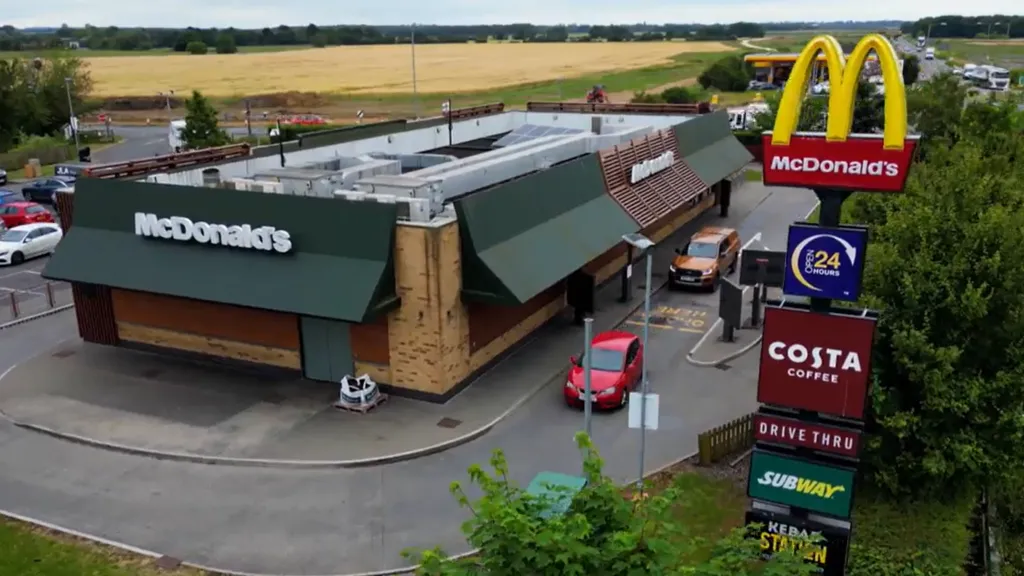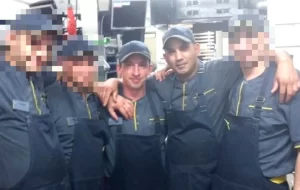Unseen Exploitation: Modern Slavery at McDonald’s and Major Supermarkets
4 min read
Nine victims of modern slavery were forced to work at a McDonald's branch in Cambridgeshire

Nine victims of modern slavery were forced to work at a McDonald's branch in Cambridgeshire
A disturbing investigation by the BBC has revealed that signs of modern slavery were overlooked for years at a McDonald’s restaurant and a bakery supplying major UK supermarkets. Sixteen vulnerable individuals were forced to work under horrific conditions, falling prey to a human trafficking network that exploited them for financial gain.
The gang, consisting of six members from the Czech Republic, managed to evade detection while subjecting these victims—many of whom had histories of homelessness and addiction—to grueling work conditions over a four-year period. They were employed at a McDonald’s branch in Caxton, Cambridgeshire, and at a bakery that supplied own-brand products to prominent retailers like Asda, Co-op, M&S, Sainsbury’s, Tesco, and Waitrose.
Despite earning the legal minimum wage, nearly all of their earnings were seized by their traffickers, leaving them with only a few pounds a day to live on. Living arrangements were deplorable, often in a leaking shed or unheated caravan, while their labor financed the gang’s luxury lifestyle, including expensive cars and property in the Czech Republic.
Victims attempted to escape multiple times, only to be tracked down and coerced back to the UK. Their plight came to light in October 2019 when they contacted the police in their home country, who then alerted British authorities.
The BBC’s investigation highlighted several glaring red flags that were ignored, including:
Dame Sara Thornton, former independent anti-slavery commissioner, expressed concern over these missed warning signs, questioning the effectiveness of the companies’ protective measures for vulnerable workers.
Det Sgt Chris Acourt, who led the investigation, echoed this sentiment, noting that opportunities to intervene were squandered. He emphasized that awareness could have ended the exploitation much sooner.

One victim, Pavel, who waived his anonymity, recounted how he was drawn into the gang’s scheme in 2016 under the false promise of a well-paying job. He described the lasting mental scars from his experience, revealing that he was paid a meager sum despite working extensive hours. The gang, led by brothers Ernest and Zdenek Drevenak, employed threats and violence to maintain control, even confiscating victims’ passports.
“They treated us like livestock,” Pavel said, highlighting the oppressive environment that isolated victims from the outside world. The gang used tactics akin to “invisible handcuffs,” closely monitoring their every move and restricting communication.
Although the gang has been convicted, Pavel believes that McDonald’s shares some responsibility for failing to act upon the obvious signs of exploitation. “I thought if I was working for McDonald’s, they would be more vigilant,” he lamented.
The McDonald’s outlet in question is a franchise, meaning it operates independently under the corporation’s name. The two franchise holders during the time of exploitation did not respond to requests for comment. McDonald’s UK released a statement emphasizing its commitment to employee welfare and plans to enhance its systems for detecting risks like excessive working hours and shared bank accounts.
The bakery, Speciality Flatbread Ltd, ceased trading and went into administration in 2022. None of the supermarkets involved recognized the slavery occurring within their supply chain while the victims were employed there.
Sainsbury’s confirmed it stopped using the bakery in 2016, while the others only acted after police intervention in 2019. Each supermarket expressed regret over the historical oversight and committed to reviewing their processes to prevent similar incidents.
Dame Sara emphasized that retailers should conduct thorough due diligence, particularly as it pertains to their reputations. Former Prime Minister Theresa May, who introduced the Modern Slavery Act, noted its shortcomings in this case and called for stronger regulations to protect vulnerable individuals.
The UK government has pledged to take action against modern slavery, promising to pursue perpetrators and provide necessary support to victims. As awareness of these issues grows, it is crucial that both corporations and authorities improve their vigilance to combat this pervasive problem effectively.